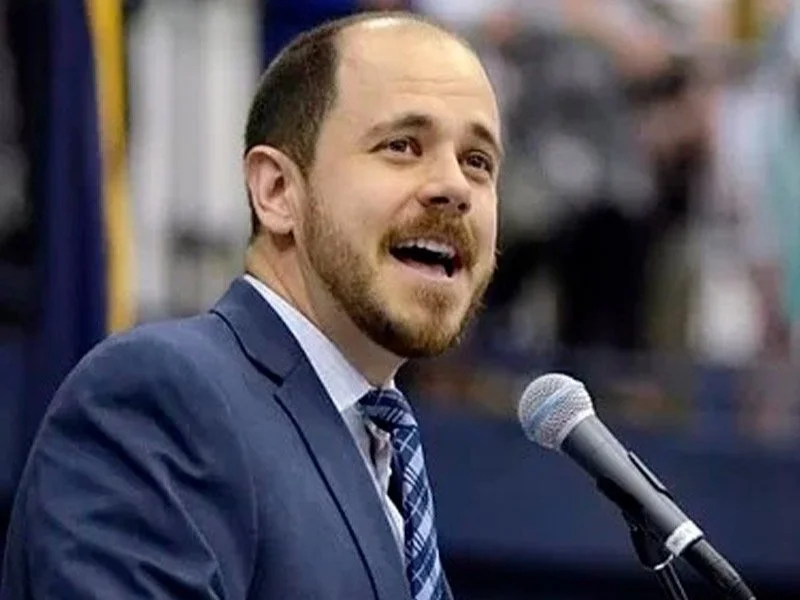Elevated Denver wants to build more collaboration to solve homelessness
By Robert Davis
A new project that will launch later this month hopes to inspire more collaborative efforts to solve homelessness in Denver.
Elevated Denver, a 10-part docu-series, will be released as a podcast on April 20. However, the project’s creators say they are not interested in creating an ongoing series. Instead, the team is focusing on building what they call an open-sourced “social collaboratory” that brings together a wide range of ideas about how to solve one of Denver’s most persistent problems.
“Our view on this is that there is so much more our community can do to address homelessness, over and above charitably giving to nonprofit entities that are already working on this issue,” Nathan Havey, one of the project’s founders, told Denver Voice in an interview.
Elevated Denver was founded by Havey alongside Johnna Flood, a 20-year veteran of the social services sector, and Tony Mainardi, a corporate consultant. Together, the team has invested a total of $30,000 of their own money to produce episodes that elevate the reasons why homelessness and poverty persist in Denver, rather than simply focusing on the daily dramas of people experiencing them.
One subject that Havey said needs more explanation is the number of Coloradans who need some form of assistance to meet their financial needs. Havey said that the team hopes to expand Denver’s scorecard for success so that it includes the well-being of its lowest income earners.
According to a Colorado Center on Law and Policy report from March, nearly one-in-four households across the state cannot meet their basic needs without some form of public or private assistance. Two of the main issues noted in the report were inadequate access to affordable housing and wages high enough to cover the cost of living. More than 46 percent of this total live in the Denver area as well.
These figures stand in stark contrast to the economic data that is often cited as reasons why Colorado’s economy is booming.
For example, the state’s unemployment rate is at 3.9 percent as of January while its gross domestic product—which measures economic productivity—increased to 6.9 percent year-over-year, according to the latest quarterly business indicators report from the Secretary of State’s office.
To that end, the team has produced episodes including people experiencing homelessness and in supportive housing so they can describe their economic struggles. Other episodes feature people working in the homeless service sector that describe some of the troubles they go through to help people living on the street.
“There are so many people that are putting efforts towards solving this challenging issue in our community, yet it continues to grow,” Flood told Denver Voice in an interview. “So, we want to challenge that system and come up with some new solutions, both big and small.”
One way that Elevated Denver is challenging Denver’s homeless response system is by making its material open-source, meaning that other organizations can use it for their own purposes.
So far, Havey said both the Colorado Village Collaborative and the Colorado Coalition for the Homeless are planning to use the Elevated Denver material for upcoming educational events. Elevated Denver has also received interest from the Denver Chamber of Commerce, which is looking to use the podcast to start conversations with its members.
The series also highlights some small, but important ways that for-profit entities can get engaged in the fight against homelessness. One way to do that is by creating a trauma-informed workplace, Flood said.
Trauma-informed workplaces differ from traditional workplaces in that they implement processes to specifically address trauma at the individual level for their employees, according to the National Fund for Workforce Solutions. Some examples include hiring a social worker to be a part of their human resources team and organizing their operations with the goal of building and maintaining trust between employees and managers.
Havey said creating a trauma-informed workplace can be a critical early intervention tool for when an employee starts sliding down the path toward homelessness.
“These workplaces can actually help service providers who are already trying to get people out of homelessness and allow them to start getting ahead of the problem rather than reacting to it,” Havey said.
As for defining and measuring the success of the project, Havey said there are several metrics the team will look at outside of listenership. For one, Havey said he wants to see the city begin to deconstruct some of the barriers to housing that it has erected. This could include making it easier for people to enter shelters and for the city to build enough dedicated supportive housing to move all the people experiencing homelessness in Denver inside.
For Flood, she said she hopes listeners will begin to challenge their own narratives about homelessness in lieu of coming together as a community to solve the problem. She also wants to see Denver continue to readjust the scales of equity in the city to create more compassionate outcomes for homeless people.
“We hope people will take this message and start working to make Denver a better place to live for everybody,” Flood said.
To find out more about Elevated Denver or to get involved with the project, reach out to the team on their website.




